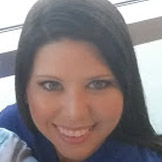One Size Does Not Fit All: Strong Professional Development Turns the Tide in Rapides Parish Schools
Alana Cohen is a district ELA Curriculum Specialist for Rapides Parish Schools in Louisiana.
Last week, I was happy to be part of an Education Week webinar with Dr. Louisa Moats. With my assistant superintendent, Kim Bennett, we shared the story of how we achieved significant K–3 literacy results in the Rapides Parish School District.
Educators naturally want to see students succeed. Teachers are working very hard to close reading gaps and improve reading proficiency on a daily basis. Professor John Hattie, an education researcher, says teachers are “change agents.” I agree that teachers are the direct connection to student success but if we do not provide strong, quality professional development that is embedded in research to build capacity in our schools, we will not see that success.
I would like to share with you some of the strategies used in Rapides Parish to address the professional development piece of our reading initiative, and ways our district equips teachers with best practices to teach early reading foundational skills.
Two years ago, after hearing concerns from our early childhood teachers that the phonics curriculum was not strong enough and was based around a “one-size-fits-all” approach, we started working on a K–3 literacy plan. Our first step was to assemble a committee that included 35 administrators, teachers, and central office staff members to review various programs. After extensive days in reviewing and collaborating, we realized the issue was not about needing another program but that we needed to increase teacher knowledge about how a student learns to read.
That is when LETRS® (Language Essentials for Teachers of Reading and Spelling) fell into our lap.
We started the process to target 19 of the lowest-performing schools in Rapides Parish and subsequently provide professional development to more than 200 educators. We continued with a new cohort in 2017, and I am happy to say LETRS is an integral part of our district. Every new teacher (or every teacher new to grades K–3) will receive LETRS professional development.
The knowledge gained during LETRS trainings about the reading brain has positively affected the way our teachers intervene with their struggling students. True learning is occurring, and you can see the “light bulb” being turned on in the teachers. Many times, during these learning sessions, I would think about my former students and how hard I worked to help them with reading but could never seem to find the right strategy. I realized it was not just about a strategy. LETRS has taught me that it is far more than something you find online that says it will help with reading. There is a systematic approach to reading and the reading brain.
As district ELA curriculum specialist, I support teachers in classroom management, lesson planning, instruction, RTI, etc. There have been countless times I have been requested to assist an educator with teaching students to read. Through LETRS, learning and understanding the 4-Part Processor in the brain along with the Simple View of Reading, teachers gain knowledge that results in reading comprehension. You must look at the root cause and strengthen the area of the reading brain in which a child is weak. Dr. Moats says, “Reading IS rocket science.” That phrase makes it seem impossible, but thanks to Dr. Moats and co-author Carol Tolman, it is not. Teachers can understand the depth and intensity of teaching students to read.
Our journey in Louisiana has been exciting and challenging but we are committed to continuing our great strides, improving reading and literacy. To hear more about what our teachers are saying and to review data, listen to the webinar, "Develop Your Teachers into Literacy Experts.” It's worth it.


